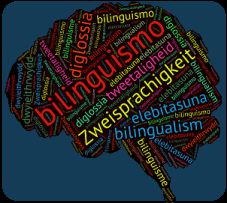Alrwaita, N., Meteyard, L., Houston-price, C., & Pliatsikas, C. (2021): Is there an effect of diglossia on cognition? An investigation of the relationship between diglossia and Executive Functions in young adults.
To access, click here
Abstract
Recent studies investigating whether bilingualism has effects on cognitive abilities beyond language have produced mixed results, with evidence from young adults typically showing no effects. These inconclusive patterns have been attributed to many uncontrolled factors, including linguistic similarity and the conversational contexts the bilinguals find themselves in, including the opportunities they get to switch between their languages. In this study, we focus on the effects on cognition of diglossia, a linguistic situation where two varieties of the same language are spoken in different and clearly separable contexts. We used linear mixed models to compare 32 Arabic diglossic young adults, and 38 English monolinguals on cognitive tasks assessing the Executive Functions domains of inhibition, switching and working memory. Results revealed that, despite both groups performing as expected on all tasks, there were no effects of diglossia on their performance in any of these domains. These results are discussed in relation to the Adaptive Control Hypothesis. Considering that this is the first study to investigate the diglossic advantages in Arabic, we propose that any effects on Executive Functions that may be attributed to the use of more than one language or language variety should not be expected when the two are used in exclusive contexts with limited opportunity to switch between them.

